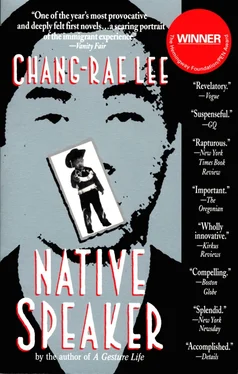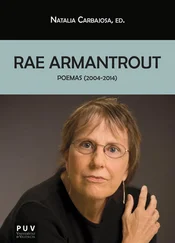“Dennis has no friends.”
“Right,” Jack replies. “So I assumed they were clients. But I tell you, Parky, I can smell that type right away.”
“What?”
“Cheap cologne and cheap shoes,” Jack says. “I noticed one of them was filling out an expense book. Of course I didn’t ask Dennis. But it was clear. Baptiste thought so, too. You can ask him. Federales .”
“Government people?” I say.
“You add it up,” Jack says. “Now, if they were visiting Dennis because of Kwang, which I am not saying, then why? You say he is legitimate, except there is a minor fact of thousands of dollars coming in through the basement of his house every week.”
“I described every stage for you. I saw everything. It’s clean.”
“Of course you did,” Jack says, waving his finger at me. “But look at this. This could be of keen interest to the revenue service. You say you redistribute almost all of the money. But maybe you don’t know. He has lost a lot of money in some businesses, yes, since becoming a councilman? A small fortune. Maybe he thinks the people owe him something back. Maybe you are running just one of his money clubs, of which there are a dozen, or two dozen.”
“You and Dennis have all the angles.”
He laughs at me. “Dennis and I cannot fool you. Whatever you wish to believe about what happened at Kwang’s office is your right. So remember this. I am the one who has been an arsonist and murderer, Parky, not Dennis. Dennis is not a man in that way. He is not a doing creature. He will falsely take credit whenever he can, big talker he is, but that is all. Now, I am seeing what you write of Kwang, the way you present him with something extra. It is evident that you cannot help yourself. Something takes you over. You must see how this is a ripe condition. So could it be that the honorable John Kwang is deceiving you, Parky, and not just the other way? Is it possible that through all of your genuine respect and admiration, he is using you?”
Jack spreads his hands on the table, his favored stance rhetorical. Of course I can’t reply. He snorts and goes back to the rest of his plate of pepperoncini, taking them neatly like candies, one by one. When he’s done he calls for more coffee and tea.
“I did not come to make trouble for you, Parky,” Jack tells me, taking my hand. “You can think I am right or I am crazy. Either way it will not hurt us, I hope. We are brothers, yes, Greek and Korean? Like it or not, Parky, ours is a family. Pete, Grace, the Jimmys. Me and you. I know it is a sad excuse for one, but what else do we have?”
“It’s an orphanage, Jack,” I say. “And there’s a Fagin.”
He shakes his head. “Whatever you say. I am not schooled. What I know is that America is not so open. People like you and me can only do what is necessary. We are not the ones who have the choices. Maybe we feel outside of things, and are smart enough, and we also know our own. So what is better, Parky, for who we are?”
“Nothing better,” I tell him.
“Right,” he says. “So you will please give us the list. Soon, yes? Dennis will probably like to send someone down for pickup.”
“I’m not sure what I can give you,” I answer.
“Well, you figure it out,” he says, with some finality. He takes out some bills to pay for dinner. He calls the waiter, who slowly walks over. Jack points up at him with his finger and says something, his tone suddenly sharp, raspy, and vicious. The waiter carefully takes the money and goes away without speaking.
We rise to leave. He folds up his wallet with his big hands.
“He spit in my coffee,” Jack says, watching the man walk every step to the register. “I told him I loved it. Now he will always wonder when this crazy Greek will come back for him.”
When you are someone like me, you will be many people all at once. You are a father, a dictator, a servant, the most agile actor this land has ever known. And all throughout you must be the favorite chaste love of the people.
John Kwang tells me this. He tells me this at night when I work in the basement of the house. He tells me this when we walk the lovely empty 4 A.M. streets of Flushing, and in the all-night Korean restaurants full of taxi drivers and dry cleaners, where we share plates of grilled short ribs and heated crocks of spicy intestine stew and lager imported from Seoul. He tells me these tips of survival as if preparing me for his rank, his position, his singular place in the city that he is letting slip from his grasp.
He is no longer moving in his customary way. He looks old and weary, like he’s standing still. He decides to make a brief appearance for the media in the foyer of the ruined offices (against the repeated warnings of Janice, who hates the shot — all that shadowy wreckage and defeat), and with the barrage of questions and arc lights and auto winders he actually falters. Perhaps for the first time in his public life he mumbles, his voice cracks, and even an accent sneaks through. He doesn’t seem to be occupying the office, the position. He gazes listlessly at the cameras and responds like a man stopped on the street, dutifully answering each part of each question, answering the follow-ups, searching through the mess of his emotions for reasons this could happen.
Total amateur hour, Janice grumbles to me. The only good thing, she says later, is that he finally steps down from the microphones before the volleys of questions about that morning’s still unconfirmed news, which is that Eduardo Fermin was renting his own apartment in Manhattan. Otherwise, she adds, it might have been official, a complete meltdown. But they shout after him anyway as he makes his way out: how did a volunteer and night student afford $1,000 a month? How come even his parents didn’t know? Who was he, and what was he doing, to have this other life?
In the next staff meeting, Janice gives us the official last word, come directly from John. He knows nothing about it. By my longtime habit and practice I put myself in Kwang’s place, and I know it must be something with the ggeh , his paying of Eduardo, the apartment being a generous gift, what he thought his protégé deserved. I would have offered good Eduardo the same. There is, however, another notion, another idea steadily working itself through my thoughts: that perhaps Eduardo was taking money from John Kwang, stealing from him and his people, the very ones we are working for all day and all night.
I check what I can. I go back over Eduardo’s records of the ggeh , the daily cash flows, every line of the ledgers. I check the rest of our political contributions. Nothing seems to be off, and what I’m beginning to realize is that Eduardo Fermin kept magnificent records and files. All this confounds me even more. I know that if there is complication in every assignment, a shift or turn that can newly show events in either shadow or light, this is the way our world has always been written. You must sail an expectedly treacherous course.
And yet for me, the mystery of a happening has no magic anymore, no natural draw. It is the graver thing I must seek, the dire constant, which I thought at first was simply John Kwang. It is him, too, for certain, but it’s also the condition Jack has suggested. Revelations are not to be found in the far bend of the river, darkly hidden in the trees. There are no ready savages there, and never were. We make angels and devils of our own want and regard, improvising from ourselves along the way.
Though I cannot see that my business has directly brought Kwang to his trouble, I know that Hoagland is now busy recompiling my daily work, preparing it for his secret reader, who will do with it what he wishes. In my weaker moments, I imagine the client as a vastly wealthy voyeur, a decrepit, shut-away xenophobe who keeps a national vigilance on eminent agitators and ethnics. Of course he’s more a collector than anything else, loving the pursuit too much, easily bored. But then I allow myself to see, and I flush with regret. I picture another client, the kind more numerous. I dread him, for he lives in the very mouth of the world; he knows its sweet and its stink, how to read any talk, and he will sift through my troubled affection for John Kwang with the soberest eyes.
Читать дальше












